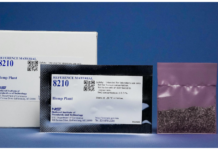Casual consumers typically don’t think about potency inflation. When a person legally buys a consumable product at a store, they trust the information printed on the package is accurate, thanks to the United States Food and Drug Administration (FDA) and Good Manufacturing Practices (GMP) standards.
Cannabis, unlike other consumable products, is illegal under federal law. As such, we are left with a nationwide patchwork of rules and regulations. In the absence of national standards for labels, standardization of testing methodologies, or federal oversight, labels on cannabis products often misrepresent the level of tetrahydrocannabinol (THC) and other active cannabinoids like cannabidiol (CBD) and cannabinol (CBN)—not to mention potentially harmful contaminants like pesticides, heavy metals, and microbes.
The professed purpose of a legal industry is that it is better able to provide safe access to high-quality, accurately lab-tested products. Unfortunately, the effectiveness of the entire regulatory framework and its ability to ensure consumer safety are called into question when fraudulent testing labs manipulate potency results.
When potency inflation occurs in states with legal access to medical and recreational products, public trust evaporates and consumer welfare is at risk. If a lab is willing to enhance THC levels in test results, what else might it alter or ignore in an effort to maximize profits or win the business of operators more focused on a pass than the quality of their product?
While a majority of U.S. states have legalized the plant in some form, there remains no federal legality, so it is left to the states to determine everything from tax frameworks to the testing requirements that are intended to protect public health. As is often the case with state statutes, differing standards, power of oversight boards, testing requirements, and even the existence of a state reference lab can vary widely, with one state’s industry often operating very differently from the next. This variation and the current lack of federal oversight are problematic—and without standardized methods for testing across the country, accuracy is not always a priority.
On the consumer side of the equation, price and potency historically have been the primary drivers of consumer purchasing decisions, and many consumers are attracted to flower with high THC levels. Due to this common assumption about demand, retailers stock strains with higher levels of THC that can be sold at a premium, and regulators are encouraged to support the structure because it generates more tax revenue. Unfortunately, this means accuracy is often not the priority for testing labs when clients are facing increasing demand to produce only high-THC products.
Lab shopping is a detrimental fallout from the lack of federal oversight and the incentives that exist in today’s market. This is further amplified by state regulatory agencies that do not have the power or the in-house scientific expertise and experience to monitor labs.
As THC levels have emerged as a benchmark for both wholesale and retail prices, many labs feel pressured by the strong financial incentives that can be the reward for giving in to potency inflation. If clients receive unfavorable potency numbers from their lab, they can simply take their business elsewhere. With the lack of effective oversight, there is almost always an “elsewhere” that is willing to accommodate these requests.
This incentive structure has created a system where those who bring samples for testing often are only looking for numbers to back up their marketing claims. They will shop their samples around until they find a lab that gives them what they want.
Sadly, it is now a viable business choice for growers seeking testing in Michigan or California to decide what data they want to accept and then shop for it. The state regulations that keep testing data under wraps have allowed this unforeseen consequence to continue by avoiding the transparency that comes from public access. Even licensed industry participants have limited access to the data held by Metrc, the seed-to-sale tracking system used by California, Michigan, and many other states.
As incidents of potentially dangerous cannabis reaching dispensary shelves continue to emerge, consumer trust in the legal market continues to erode. In order to regain that trust, data from testing should be made public, thereby eliminating most of the latitude labs have to inflate potency and gloss over product inadequacies.
A 2021 study published in the Journal of Cannabis Research compared the state of Washington, where testing data is publicly available, to Nevada, where data is available to only state regulators, the labs that conducted the specific testing, and the licensee that submitted the tested products. The study revealed there was far less potency inflation in Washington than in Nevada.
The type of access to data that exists in Washington benefits consumers and the industry at large. After all, scientific progress is built on access to data, and transparency yields accountability.
If solid scientific progress is built on transparency and access to data, it makes sense to require more accountability among the labs. As the study’s authors noted in their call for increased lab oversight, their findings “highlight ongoing irregularities with legal cannabis testing.”
Lab owners and operators can lobby their state legislatures and work to promote transparency by contacting regulatory boards and utilizing Freedom of Information Act requests to increase awareness of misrepresentations in testing results. Engaging with the media is also an avenue that has worked at an investigative level. For example, Colorado regulators ramped up potency testing in the wake of The Denver Post reports about products with major label discrepancies. Labs should call for an increased analysis of data, establish a ground level of authenticity, and never sacrifice accuracy in their work.
Ultimately, as the nation awaits federal legalization, the need for standardization is as critical as ever and will succeed only through a culture of shared accountability that prioritizes consumers’ safety and well-being.










